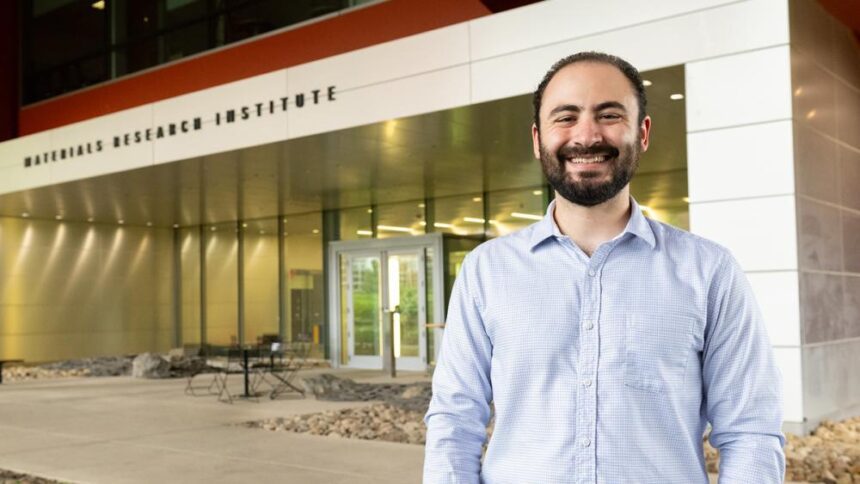UNIVERSITY PARK, Pa. — Andrew Pannone, a fourth-year doctoral candidate in Penn State’s Department of Engineering Science and Mechanics, has been selected as a 2023 NASA Space Technology Graduate Researcher.
The NASA Space Technology Graduate Research Opportunities program supports graduate students who “show significant potential to contribute to NASA’s goal of creating innovative new space technologies for our nation’s science, exploration and economic future,” according to the program’s webpage. Pannone’s award is in the form of a grant to Penn State on his behalf, with his adviser, Saptarshi Das, associate professor of engineering science and mechanics, as the principal investigator. The one-year, $84,000 grant is renewable for up to three additional years and a total of $336,000.
“Andrew’s receipt of the prestigious NASA fellowship is a testament to his outstanding academic credentials and robust publication record,” Das said. “Throughout his educational journey, he has consistently demonstrated intellectual rigor, a deep mastery of his subject matter, and a zealous commitment to pioneering research.”
Pannone’s project, “Realization of intelligent instruments through the integration of neuromorphic devices with gas sensors enabled by two-dimensional materials,” aims to develop novel sensors that could be used in NASA space missions to detect gaseous species. The goal is to create intelligent chemical sensors that are miniaturized in size, weight and power and augmented by on-chip data analysis that uses machine learning algorithms and artificial neural networks.
“This methodology of integrating neuromorphic devices with gas sensors approaches the optimization of key gas sensing metrics from two separate perspectives,” Pannone said. “First, it will explore the optimization of gas sensor performance by introducing innovation at the material level and the device architecture level. Next, it will exploit the power of machine learning algorithms to maximize the amount of information extracted from sensor data in an energy-efficient manner by utilizing near-sensor computation.”
In addition to conducting research with Das at Penn State, Pannone will collaborate with NASA researcher Mahmooda Sultana, both remotely and through a 10-week visiting technologist experience at the Goddard Space Flight Center in Greenbelt, Maryland.
“I am extraordinarily grateful that NASA has selected our proposal and given me an opportunity to conduct research that contributes to the development of space technology,” Pannone said.
Pannone received his bachelor of science in engineering science and mechanics along with minors in physics, nanotechnology and engineering mechanics from Penn State, during which time he first began working in Das’ research lab in the field of nanoelectronics. Pannone was able to contribute to several research projects as an undergraduate student and produced the honors thesis “Enhancing EEG Classification by Using Neuromorphic Computing and Artificial Neural Network Analysis.”











